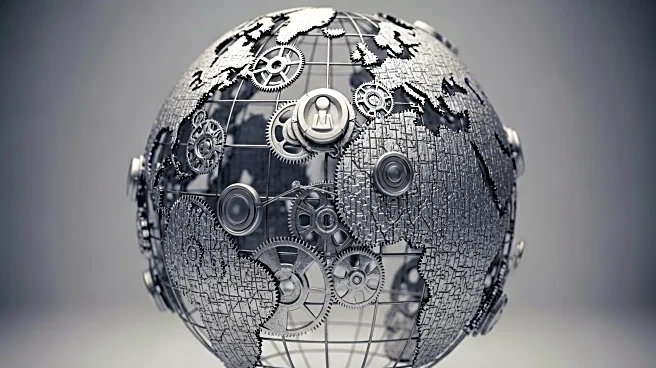What's Happening?
External Affairs Minister S Jaishankar emphasized the necessity of a global workforce in today's changing world. He pointed out that many countries face challenges in meeting workforce demands due to demographic constraints. Jaishankar's remarks underscore the importance of international collaboration and mobility to address labor shortages and economic needs. The statement reflects ongoing discussions about the role of global talent in driving economic growth and innovation.
Why It's Important?
Jaishankar's comments highlight the critical role of a global workforce in sustaining economic development and addressing labor shortages. As countries grapple with demographic changes, the need for international talent becomes increasingly important. This perspective is particularly relevant for industries reliant on skilled labor, such as technology and healthcare. The emphasis on global workforce mobility could influence immigration policies and international cooperation, impacting businesses and economies worldwide.
What's Next?
Countries may need to reassess their immigration policies and workforce strategies to accommodate the growing demand for global talent. This could lead to increased collaboration between nations to facilitate the movement of skilled workers and address labor shortages. Policymakers and industry leaders will likely explore new frameworks to support workforce mobility and ensure economic resilience in the face of demographic challenges.
Beyond the Headlines
The call for a global workforce raises ethical and cultural considerations, including the integration of diverse talent and the potential impact on local labor markets. As nations navigate these complexities, they must balance the benefits of international collaboration with the need to protect domestic workers and maintain social cohesion.










